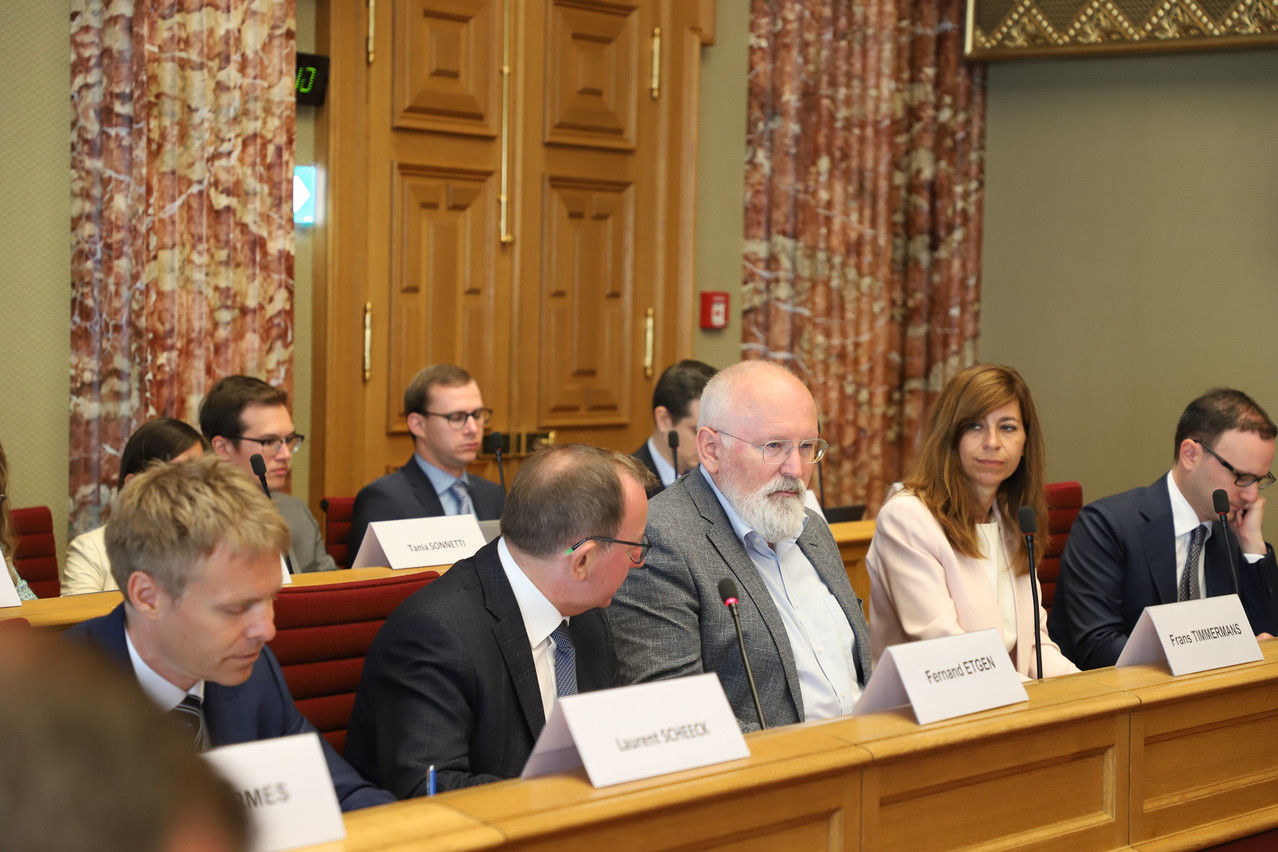Luxembourg and a handful of other EU countries firmly oppose including nuclear energy in a list of activities that the EU labels as sustainable for investors. The European Parliament on Wednesday is set to decide whether it agrees with the commission plans.
“If I was alone at the commission, there would be a number of decisions taken differently, including this one,” Timmermans said in the Chamber of Deputies, responding to a question by Luxembourg member of the European Parliament Charles Goerens (DP) about his opinion on the taxonomy.
“At the commission we must work with the political realities of member states. Member states must be on board,” said the commission vice-president who is in charge of the Green Deal and climate action policy. “For some member states, nuclear is completely unacceptable, like in Luxembourg. For other member states, nuclear is essential in their energy structure.”
We must work with the political realities of member states.
Luxembourg had previously threatened to by Austria against the commission should the taxonomy include nuclear energy as a transition power source. In both countries, the Greens are in government.
Timmermans said that countries and utilities providers should do the math before embarking on nuclear projects. A nuclear power plant takes at least 20 years to start producing electricity, he said. At the same time, renewable sources are becoming cheaper while nuclear energy is becoming more expensive.
The commission vice-president also warned of a misunderstanding, saying that the taxonomy doesn’t mean that the commission will actively fund investments into nuclear energy. Instead, it will be considered a green investment for private investors looking to be more sustainable. But Timmermans said he doubts that investors are going to dramatically change their strategies because of the taxonomy.
Cattenom woes
France’s EU commission Thierry Breton, who oversees single market policy, in January had said that is needed in existing and future nuclear reactors to meet the EU’s energy demand. Nuclear energy accounts for more than two thirds of France’s electricity production and the country is looking to extend the lifespan of several reactors, including the Cattenom plant across the border from Luxembourg.
Two reactors at Cattenom are currently being analysed for , together with reactors of the same generation at several other plants in the country. The other two reactors at Cattenom are also off-grid for other maintenance, leaving the plant at a .
Under the taxonomy, gas is considered a transition fuel as well, with Timmermans explaining it was seen as a step away from coal towards renewables. However, in light of the war in Ukraine and the move away from Russian gas, more countries are considering using coal longer to then switch to renewables, he said.
Nuclear can play a role as a transition energy towards renewables.
“Nuclear can play a role as a transition energy towards renewables,” Timmermans said on Monday. “It’s the reflection of a political reality.”
Germany, which began shutting down its nuclear reactors after the Fukushima nuclear disaster in 2011, has seen its Christian democrat opposition, the CDU, call for the country’s remaining three reactors to be kept online longer in light of the energy crisis.
Luxembourg’s Christian democrats, the CSV, which is also in opposition, has failed to renew its , saying that nuclear energy is an alternative to get through the energy crisis.
Co-president of the CSV Claude Wiseler told RTL on Wednesday that the party remains against nuclear energy and that the party advocated switching to alternative energies as quickly as possible. “On the other hand, we’re also saying that this cannot yet be the case today and that we need a transition period.”
(Additional reporting by Ioanna Schimizzi)
